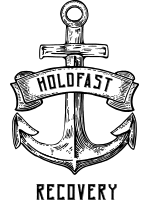
Rehab Aftercare Programs in Prescott
Continued Care and Support
Once a client is at Holdfast Recovery, they become a member of the Holdfast Recovery family. As a member of the Holdfast Recovery family, past clients can feel free to reach out for support, help, encouragement, or just to let us know how they are doing. Past clients will receive routine check-ins from our staff to ensure their long-term success.
Your relapse prevention success plan starts from day one. Putting old ways behind and creating new ways of thinking and coping help clients live out their true identity upon graduation. Working through past trauma promotes forward thinking for clients. Holding fast to Jesus will enable clients to progress forward into God’s will for their lives. A true change from the inside out is what will get clients free from the disease of addiction and live fulfilling lives upon graduation.
What Are Aftercare Programs for Substance Abuse?
Aftercare programs are a proven relapse prevention strategy. They provide step-down levels of support that let you begin to integrate back into a traditional life while also getting regular assistance from others in maintaining sobriety post rehab.
A typical progression of substance abuse treatment might include steps such as:
- Intensive outpatient recovery, where someone attends a substance abuse treatment program most days of the week
- Outpatient recovery, which might include attending group and individual therapy a few times a week
- Aftercare services, which might include individual therapy weekly or as needed, attendance at groups or support meetings and following up with doctors and other providers periodically to support overall physical and mental wellness
Importance of Aftercare Services for Long-Term Recovery
In a peer-reviewed article published by the U.S. Department of Health and Human Services, James R. McKay, Ph.D. reviews controlled studies of the impact of continuing care on addiction treatment. He looked at studies conducted over the course of 2 decades and found “convincing evidence” that continuing care — including aftercare programs — was effective in helping people maintain positive gains from rehab.
In short, aftercare programs for substance abuse supported individuals who were still practicing their new sober coping skills and making changes in their lives. Doing these things alone can leave one feeling isolated or struggling, which can be triggers for relapse. When you can reach out to an aftercare support system, you typically have a better chance at long-term recovery.
Exploring Support Groups and Sober Living Options
Aftercare services can be customized to meet various needs and preferences. Commonly, people think of 12-step programs such as Alcoholics Anonymous as a way for recovering addicts to get aftercare. While these work well for many people, they aren’t the only programs available.
Some programs concentrate on individual, group, or even family therapy. Other options might include a comprehensive approach to wellness that includes ongoing addiction therapy as well as education and support for career goals, diet and exercise, and dealing with other mental health issues.
Choose Holdfast Recovery for Comprehensive Aftercare Support
Holdfast Recovery knows that the road can be long, and life can be difficult, which is why we reach out on a regular basis to all of our Holdfast Recovery family. We also work with you to plan aftercare and follow-up services so that you never have to face the road to recovery alone.
Contact us today by calling (800) 680-7738 or using our online contact form to find out more.

HEAR FROM PAST CLIENTS
Why Holdfast?
-
We Provide Top-Rated Drug & Alcohol Addiction Treatment
-
We Work With Limited Budgets and Insurance
-
We Support & Care For You Without Judgment


